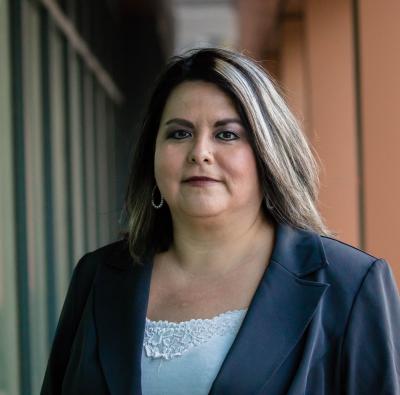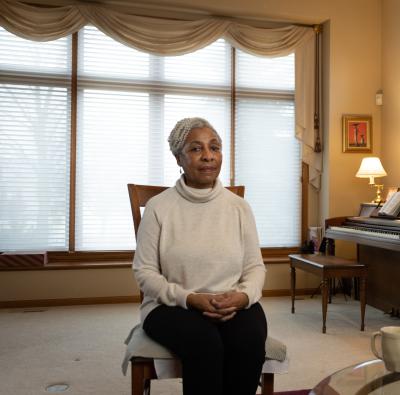From protecting the freedom to vote to ensuring ethical governance and guarding against abuses of power, Congress has the tools to ensure our government is working for the people. Now is the time to use them.
At Campaign Legal Center, we work every day to advance solutions to the various challenges facing our democracy, including advocating for...
Elected officials craft laws that directly impact the lives of Americans. Voters have a right to know lawmakers’ decisions are in the public’s best interest, not for personal financial gain.
Congress (with Campaign Legal Center's support) passed the Stop Trading on Congressional Knowledge (STOCK Act) in 2012, following more than 10 years of...
Campaign Legal Center (CLC) and our partners are asking the U.S. Supreme Court to defend the ability of Americans to use the Voting Rights Act (VRA) to challenge unfair voting maps that dilute voters’ power based on their race.
On behalf of our clients, the Spirit Lake Nation (Mni Wakan Oyate), Turtle Mountain Band of Chippewa Indians and...
Voters should be able to elect leaders that best serve their communities. In Washington state’s Yakima Valley, Campaign Legal Center and our clients and co-counsel have been fighting for fair maps for Latino voters since 2022.
Once again, voters have successfully defended their right to fair representation in state government.
How did we get here?
I...
Campaign Legal Center has been in court since 2022 on behalf of a bipartisan group of Utah voters, the League of Women Voters of Utah (LWVUT) and Mormon Women for Ethical Government (MWEG), to protect voters’ rights to fair maps and fair representation.
Following a long legal battle, a Utah state trial court has ruled in favor of our clients to...
Our democracy works best when every voter can participate, and voting by mail is a secure way for voters to make their voices voice heard.
President Trump has voiced his opposition to vote-by-mail, even suggesting he would try to end this method of voting via executive order. But voters should rest assured that the president does not have this...
All Americans — regardless of whether they have a felony conviction — should be able to exercise their freedom to vote.
Yet, across the country, voting rights restoration is being undermined by new laws and administrative barriers that are attempting to curtail the progress made by rights restoration advocates, including by Campaign Legal Center’s...
Campaign Legal Center (CLC) has been sounding the alarm since before President Trump’s second administration even began that the president’s blatant disregard for ethics laws and norms could pave the way for corruption, the misuse of taxpayer funds, and personal enrichment over the public good.
Now, it appears that members of his administration...
When donors give candidates money to support their candidacy, they expect such funds only to be used for campaign-related purposes or expenses related to a sitting officeholder’s official duties.
Under federal law, campaign contributions may not be used to pay for personal expenses.
When public officials violate this important law and use donor...
Elections should be determined by voters, not politicians who manipulate voting maps. Gerrymandering — the manipulation of the map-drawing process for political gain — makes it easier for politicians and political parties to consolidate power and win elections at the expense of voters and our democracy.
Gerrymandering directly affects how...
Wealthy special interests have increasingly dominated the financing of our elections, threatening to drown out the voices of everyday Americans. Running an electoral campaign for public office can come with an exorbitant cost, which helps explain why megadonors — or the outside groups they bankroll — routinely end up footing the bill and, in the...
In America, every voice should be heard, and every vote should count equally. The Voting Rights Act (VRA) of 1965 is an important federal law which protects that important ideal by banning racial discrimination in voting.
The VRA was passed to keep the promise of the 15th Amendment, which states that the right to vote cannot be denied based on...
Voters have a right to know who is trying to influence their vote and who is working to influence our government.
Transparency about the sources of funding for our elections and candidates, and how that money is spent, is central to the free and fair functioning of our democracy.
That’s why we’re leading the charge to defend the Johnson Amendment...
All voters should be able to make their voices heard in elections and every vote should count equally.
In opposition to this basic American principle, the Trump administration’s Department of Justice (DOJ), in coordination with Texas Governor Greg Abbott, is pushing the Texas State Legislature to draw new voting maps in Texas that intentionally...
After years of struggle and devoted advocacy by civil rights leaders, the Voting Rights Act (VRA) was finally signed into law on August 6, 1965. This landmark legislation transformed American democracy and ended an era of rampant discrimination against Black Americans and other voters of color in our elections.
But, over the last decade, the...
All voters should be able to invoke the protections of the Voting Rights Act (VRA), an important federal law that bans racial discrimination in voting.
These protections should extend to all Americans, regardless of the state they live in — and thanks to efforts by Campaign Legal Center (CLC) and our partners, on behalf of our clients, the U.S...
Campaign Legal Center (CLC) has presented its proposed factual findings and legal conclusions in a case that has the potential to set an important new precedent for campaign finance transparency in our elections.
In this rare Federal Election Campaign Action Act (FECA) citizen suit, CLC has uncovered a wide array of evidence that proves the “major”...
Nonpartisan civic engagement groups that help voters engage in the political process are essential to our democracy. These groups ensure that all voters are able to register to vote and make their voices heard.
Campaign Legal Center (CLC) has been instrumental in upholding this time-honored democratic tradition, most recently by defeating a Kansas...
In a win for transparency, a federal district court in Washington, D.C., has ruled that the Federal Election Commission (FEC) violated federal law by failing to sufficiently explain its reasons for dismissing Campaign Legal Center (CLC)’s complaint alleging that a super PAC called “Last Best Place (LBP) PAC” violated federal campaign finance...
As Congress debated the so-called “One Big Beautiful Bill Act,” two little-known and dangerous provisions quietly emerged as serious threats to our core democratic safeguards. Thankfully, both have now been resoundingly defeated.
Because of Campaign Legal Center’s efforts, alongside the tireless work of many of our partners, both threats were...
The U.S. Supreme Court issued a decision at the end of its 2024-2025 term that will drastically alter the ability for courts to check presidential power.
With its decision in Trump v. CASA, a case nominally about the Constitution’s guarantee of birthright citizenship, the Supreme Court sets the stage for a drastic expansion of presidential power...

